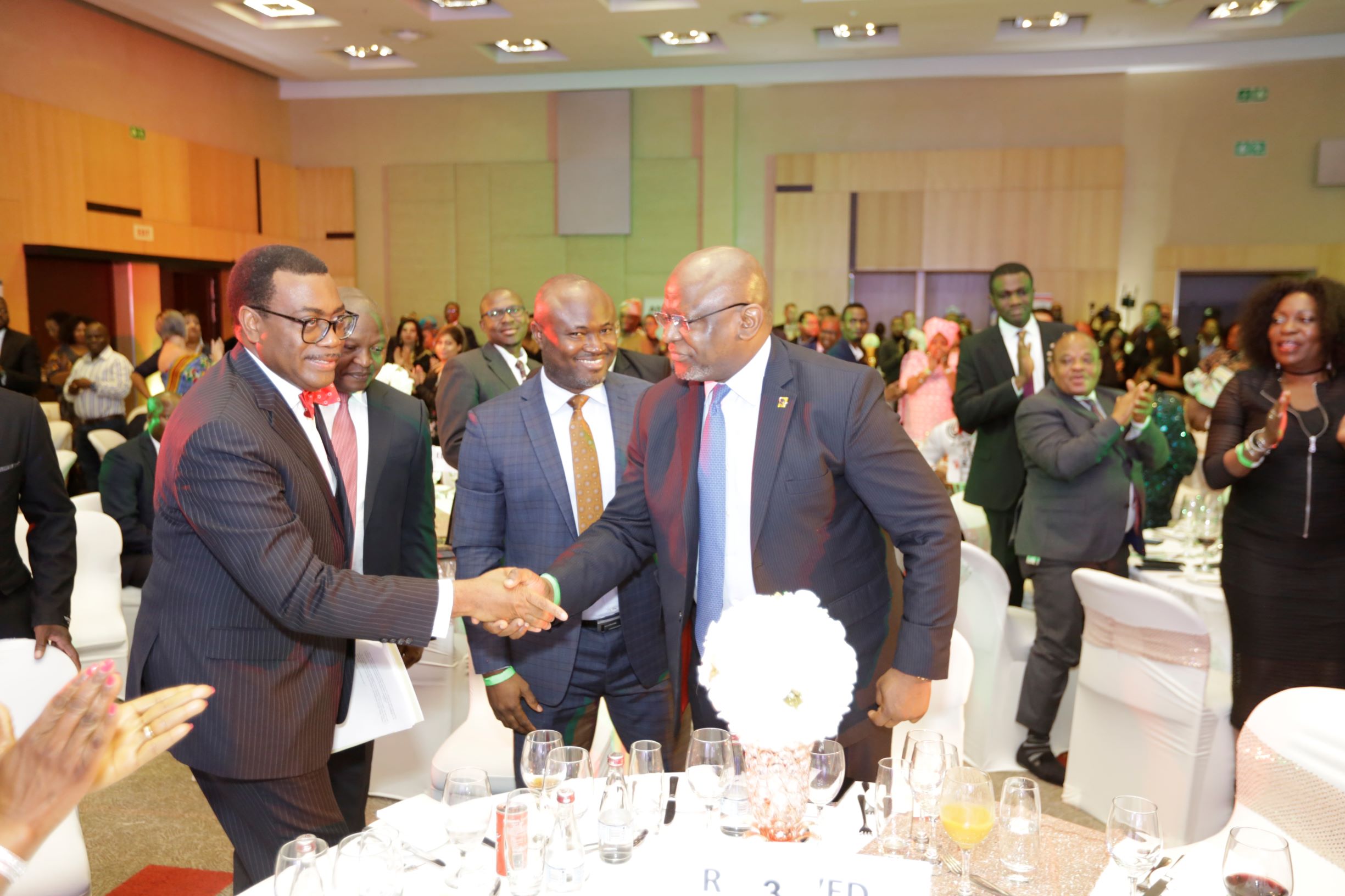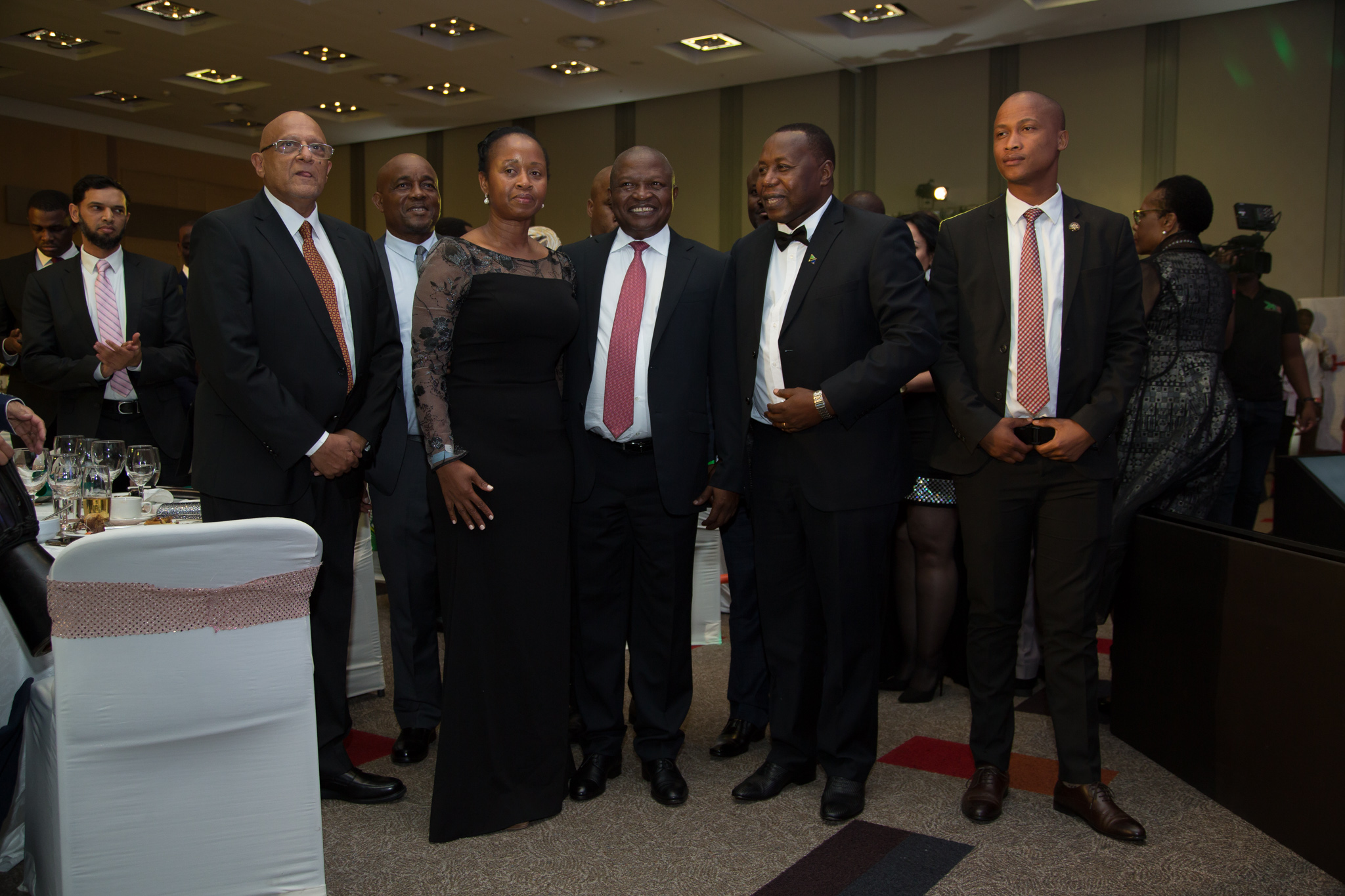The banking ecosystem in Nigeria is in a state of constant change which is evident in the increased use of technology and other innovations to create a seamless banking experience for customers. In this exclusive interview with African leadership Magazine, Dr Adesola Kazeem Adeduntan, Managing Director/CEO, First Bank of Nigeria, shares with us the impact of technology on the banking industry as well as initiatives created to tackle unemployment in the nation. Excerpts.
FirstBank celebrated its quasquicentennial anniversary recently, no doubt a huge milestone. Can you share some of the major milestones of the Bank in the last 125 years?
Belonging to the club of institutions of over 100 years is in itself a cherished milestone. FirstBank is a pioneer in every aspect of the financial services industry. In over 125 years, we have been supporting and enabling dreams unreservedly. We are trusted as a long-term value provider to all stakeholders beyond the banking halls. We have led the way from mergers and acquisitions to international expansion, from product innovation to brand reinvention. FirstBank is the only Bank that served as a regional Central Bank, surviving two world wars and transiting through two centuries.
As a quoted company, FirstBank became the first Nigerian Bank and indeed the first quoted company in the country to hit ₦2 Trillion market capitalisation. FirstBank is the only Bank that has produced two Governors of the Central Bank of Nigeria and continues to feed the public and private sectors with an extremely experienced wealth of human resources. FirstBank has the distinguished position of emerging the best banking brand in Nigeria six years in a row. We are proud of our contributions to the growth and development of Nigeria. FirstBank is undoubtedly woven into the fabric of society and is beyond comparison.
Having witnessed Nigeria’s amalgamation, independence, and all the major landmarks in Nigeria’s history, it is safe to say that the Bank is an integral part of the country’s history. What would you say has been the Bank’s role in the country’s socio-economic development?
As you are likely aware, FirstBank was here before Nigeria emerged as a unified entity. The Bank has been entrenched in the Nation’s development for over 125 years and its significance as a nation builder and a national icon cannot be overstated. From serving as the Central Bank to the West African sub-region, providing the earliest loans to the then colonial government, funding the railways, to funding the recent commercialization and privatization programmes of the Federal Government, FirstBank has been at the forefront of national economic development. Through its social responsibility and sustainability programmes, the Bank’s social impact reverberates nationwide resulting in increased appreciation from all stakeholders. We are proud of our sponsorships as the leading light in promoting economic development, education, health and welfare, sports and youth development. We are the foremost partner of the Nigerian Economic Summit Group, the largest public-private sector engagement in the country. We have sponsored the Georgian Cup of the Kaduna International Polo Tournament, for the 100th year in 2019, the oldest sports trophy in Nigeria and perhaps the longest consecutive sports sponsorship in the world; it is a Guinness World Record potential.
We have sponsored the Lagos Amateur Open Golf Tournament for almost 60 years. Apart from sports, FirstBank supports education. Today, we have provided structured professorial endowments and infrastructure development in 17 Universities and many secondary schools for 25 years. Our targeted programmes continue to empower women, youth and SMEs to contribute immeasurably to the development of the national and global economy. Beyond these, FirstBank remains the biggest player supporting the real sector in every industry nationwide.
FirstBank currently processes over 20% of the financial services transactions in the country, this also coincides with the rebranding initiative carried out by the Bank over the years. What was the idea behind the rebranding innovation and was it responsible for the upsurge in the Banks’ market share?
FirstBank has proven itself as a bastion of trust, safety and security in the past 125 years. Continual rebranding is part of our Bank’s culture. This is necessary as the Bank has evolved over time and perfected the art and science of reinventing itself to remain dynamic, responsive and relevant to every generation of clients and other stakeholders. The recent brand refresh was another opportunity to reposition our brand to align with both local and global trends in the corporate world. We also needed to create an icon which can be owned. Unlike the former logo we created an icon which can be owned, and this has helped to create the right perception for the iconic FirstBank brand. It is important to note that the refresh was not just a facelift.
The Bank has done a lot in upscaling its services to customers. We have provided alternative banking channels for customers in order to decongest the banking halls and enable customers to bank with ease and convenience. We have deployed virtually 3000 ATMs and 14000 POS machines. We have over nine million USSD users and 10 million cards in circulation. Due to its ease of use, our Firstmobile app won the Best Mobile Banking App in Nigeria award recently. Our other alternative channels of banking like Firstmonie Agent Banking (over 48,000 agents nationwide) and Chat Banking on Whatsapp are making an enormous impact nationwide.

Akinwunmi Adeshina, President AfDB receiving Adesola Kazeem Adeduntan, MD/CEO, First Bank Nigeria during the 8th African Leadership Persons of the Award Gala which took place on the 29th February at the Sandton Convention Center, Johannesburg, South Africa.
The Central Bank of Nigeria (CBN) adopted the National Financial Inclusion Strategy (NFIS) in 2012 to increase access to financial services in the country to 80% by 2020 yet about 41.6% of the adult population are still financially excluded. What role is FirstBank playing to increase access to financial services in the country?
FirstBank of Nigeria Limited is at the vanguard of implementing strategies to improve access to finance and enhance financial inclusion in the country. Currently, we have over 48,000 agents in 770 Local Government Areas across the country, actively providing financial services such as account opening, funds transfer, BVN enrolment, cash withdrawal, cash deposit, bills payment and so on, in areas with a previously high rate of financial exclusion. The excluded, as well as the underserved segments of the society, are now able to perform these transactions in real-time, and beyond traditional banking hours too. We serve our customers as well as non-customers.
The scheme also has a social impact by providing sources of revenue for individuals and small businesses. Our growth plan is aggressive, and we will not rest until banking facilities and services are made available to all Nigerians, including the target 41.6% adult population.
Digital Financial Services (DFS) awareness remains very low, what can be done to hasten adoption and awareness?
In our experience, the deep penetration of mobile telephony in Nigeria and across Africa continues to support the rapid adoption of Digital Financial Services. Users are willing and ready to adopt new and convenient ways of performing financial transactions, including the use of digital platforms if they are properly engaged. This is where adequate education and support becomes imperative.
Today, the Nigerian Communication Commission reports 184 million mobile line subscriptions, while 125 million are reported to be active on the internet. These are available platforms that could be leveraged to educate the people about the compelling value DFS provides.
Nigeria has a large youth population which naturally tends to adopt Digital Financial Services much more quickly; this group can be instrumental in educating their parents and peers through well-designed financial education and campaigns. In FirstBank, we are deliberate about youth engagement and we have seen strong adoption across the various financial products and services. For example, we regularly visit schools and campuses to offer financial literacy programmes, as well as sponsor related initiatives.
In 2018, telcos received licensing to enter into the financial services space through the Payment Service Bank (PSB) licenses, do you think this will complement traditional banking or will become a threat to the Banks in Nigeria?
Telcos license is not seen as a threat rather, it could be a complement to the banks. By leveraging the use of technology, PSBs are expected to drive financial inclusion services for low-income earners and the unbanked. However, there are several financial services that cannot be rendered by PSBs such as granting loans and advances to their customers, or trading in foreign exchange markets except for remittance within the country. We see several opportunities for partnership between banks and the Telcos.
According to a 2018 McKinsey Report, the number of the unbanked in the continent is expected to grow to about 450 Million by 2022. Considering Africa’s population which is over 1.2 Billion at the moment, there is still so much work to be done. In your view, what can be done to accelerate banking coverage in the continent?
The aggressive step taken by the Central Bank of Nigeria to decrease unbanked and under-banked population in the country through various routes is the first step in accelerating banking coverage. Hence, without relenting on any of these efforts and deliberately intensifying strategies to improve on what is currently being done would improve banking coverage.
Most African countries are also working actively to decrease the gaps in financial inclusion. As a bank, we are continuously making efforts to drive financial inclusion services in those countries through our subsidiary presence in six other African countries.
With available new technologies, like cloud computing, AI, and agency banking, Africa should be able to meet up with their objective of reducing financial inclusion gaps.
Disruptors are changing the way banking is done across the globe, lending credence to Bill Gates’s famous dictum, “banking is necessary, banks are not.” What is your reaction to this position?
I think banks will continue to be relevant in the effective delivery and management of financial services in any society. However, I share the view that Banks that do not innovate to meet the current and future customer demands will not be necessary for the emerging landscape. The recent emergence of Fintechs and the Bigtechs could potentially redefine the role of banks but does not constitute a replacement. Banks are competing favourably with Fintechs in terms of agility and innovation, in addition to consumer trust, brand equity, and the large distribution networks which they currently own.
At FirstBank, we are clear-minded on our strategic response to the changing landscape and will not only continue to play necessary roles but critical ones in supporting the aspirations of our discerning customers. Also, we are building massive digital assets that continue to attract all players to profitable partnerships such as giving the Fintechs scale and route to market.
Some analysts are predicting that the African Continental Free Trade Agreement when operational will pose a significant challenge to Banks in the continent as they will require flexibility in risk assessments and financing requirements, especially since there is already a very high trade finance deficit. What’s your take on this?
There are many perspectives on AfCFTA. It should serve the continent well in the long term. There are numerous value chain and economies of scale opportunities to be harnessed. With the continent’s size, population and promising potentials and as a financial services provider already spread across the continent, we are poised to seize the moment in sync with our vision to be Africa’s bank of first choice.


